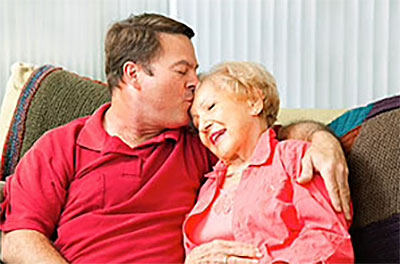Caregiving Articles with Tips and Recommendations
Helpful Healing: Senior Rehab and the Healing Process
Seniors face many challenges as they age and may need more intensive rehabilitation care, especially after suffering injuries from a fall, a stroke or a cardiovascular event. The length of time spent in a senior rehab program can greatly improve the senior's health, and allow him or her to maintain independence and get back to the normal routine much quicker following an event.

A Guide to Caring for Aging Parents
10 Time Saving Tips for the Family Caregiver
How to Stock Your Caregiving Closet
Providing for Grandchildren In Your Will or Estate Plan
The prevailing rationale is that the grandchildren will be taken care of by their parents, but here’s how you might recognize grandchildren in your will .
Put it in Writing! Three Legal Documents Your Parents Must Have
If you are able, take the time before your parents need help and while they are still functioning comfortably to ask about the "big" things. Solicit their preferences for managing financial matters or real property. Find out what treatment efforts, such as resuscitation and life support, they want and expect in the event they become incapacitated.
Guardianship Versus Conservatorship – What Is the Difference?
Due to the inexorable deterioration of the cognitive faculties of a person with dementia, there is a progressive inability to carry out the various activities of everyday life. There may come a time in the course of the disease when decisions such as living arrangements (independently, with relatives, assisted living or nursing care), medical treatment, financial affairs, and personal care can no longer be handled by the patient with dementia or Alzheimer's. In these situations, someone must shoulder responsibility for managing that person’s affairs.
When is Guardianship Appropriate?
In certain cases, mental functions decline extensively with advancing age. The reasons for this progressive degradation vary with the individual, but dementia, sparked by conditions such as Alzheimer’s disease, diseased blood vessels in the brain, and Parkinson’s disease, is a leading cause.
How to Tell Someone It's Time for Assisted Living
The Right Move: Working with a Senior Move Manager
A Senior Move Manager is a professional who specializes in assisting older adults and their families with the emotional and physical aspects of relocation and/or aging in place. Senior move managers provide a multi-faceted approach to the move process: from space planning in the beginning to post-move support and advocacy.
Making Smart Housing Decisions: ADLs and IADLs
One of the most important factors when considering what type of long-term housing is appropriate for a senior is to carefully examine what are known as the ADLs and the IADLs.
Peripheral Edema: What You Should Know About Swollen Legs
The most common place to see edema, or swelling, is in your feet, ankles and lower legs. Edema is the result of fluid building up in your body. It can happen in any part of your body, but because of the effects of gravity, the fluid usually shows up as painless swelling in your lower extremities.
